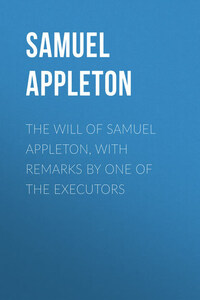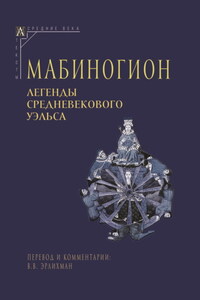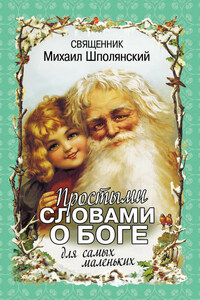Samuel Appleton was born at New Ipswich, N.H., June 22, 1766, and died, without issue, at his residence in Boston, on Tuesday, July 12, 1853; having just entered on the eighty-eighth year of his age.
In November, 1819, he married Mrs. Mary Gore, who was much younger than himself. This union has been marked, on his side, by the most unvarying confidence and sincere affection. He has ever found his own delight in gratifying each wish of his wife with an almost boundless indulgence. And she – the brilliant and happy mistress of his hospitable mansion – has been alike admirable, when presiding over its social circle, or its more public gayeties; and when, in its private recesses, she has devoted herself to what she has ever felt to be her highest duty and her chief privilege, – that of guarding the declining years of her husband with the most kind and thoughtful care; cheering his pathway to the tomb by those considerate attentions, which, both in life and in death, he so gratefully appreciated and acknowledged.
On the last morning of his life, he enjoyed his usual health. During the day, however, he suffered pain and uneasiness, apparently the result of indigestion. Mrs. Appleton, therefore, remained constantly with him, but without feeling any serious apprehensions. He at length seemed to be entirely relieved by the means used, and said, "I will now try to go to sleep." In a few moments, Mrs. Appleton was alarmed by hearing him breathe once or twice much more loudly than usual. She ran to his bedside, and his favorite female attendant was immediately summoned. He was still lying in the same attitude of repose. The sleep that had fallen upon him so gently was the sleep of death!
This event at once called forth a universal and spontaneous expression of regard for the deceased from the community in which he had so long lived. It was unrestrained by any differences of political opinion or of religious sentiment. Thus, in the "Boston Post," the organ of the Democratic party of Boston, there appeared the following communication: —
"Samuel Appleton is dead! Never has there been summoned from among us a purer man or a more public-spirited citizen. Possessing strong natural sense and the most plain and unaffected manners, he was truly simple-hearted and noble-minded. There was nothing about him of ostentation or pretence. All his acts, during a long life, praise him. Beginning with humble prospects, by industry and intelligence he became one of our wealthiest merchants. As a country schoolmaster, during the winter months, he was once, when a young man, 'put up at auction, to be boarded out in the family that would consent to take him at the lowest rate.'1 Latterly, for many years, probably not a day has passed without the performance of some deed of kindness great or small, – some act of public or private munificence; and each evening saw him sink to rest, happy in the consciousness that he had made others happy. In a notice of him, as a benefactor of one of our chief charitable institutions, published not long since, it is said: 'In advanced age, and unable to walk from his house, he continues in the highest and best sense to enjoy life. He has, indeed, no children; but a numerous band of nephews and nieces look up to him with truly filial regard. Indeed, the community itself ventures to apply to him their familiar and affectionate appellation of "Uncle Sam." This name, in the abstract so dear to every patriot, could not be more worthily bestowed.'2 That life, so honorable and so useful, rendered sweet by the daily blessings of those whose necessities or sufferings have been relieved by his bounty, has been fitly closed by a calm and peaceful death."
Obituary notices of a like favorable character, and characteristic anecdotes, &c., were inserted in the "Daily Evening Transcript," the "Boston Courier," and the "Christian Register," and also in various other journals.
Public funeral services were held at the Stone Chapel, on Friday afternoon, at four o'clock. The Hon. Thomas H. Perkins, and a few other surviving contemporaries of the deceased, were present among the assemblage of relatives and friends by which the church was filled.
He was buried at Mount Auburn, in a lot which he had purchased many years ago, and on which he had erected a costly monument. Designing to embellish that field of the dead, he had authorized an artist in a foreign country to execute this work without regard to expense. When completed, it was not in accordance with the simple tastes of Mr. Appleton. He even desired that he might be buried in his tomb, under a church in Boston, rather than in the beautiful spot which he had thus selected and adorned. The existing ordinance of the city rendered it impossible to comply with this suggestion; and indeed it seemed to be, on other grounds, inexpedient.
At a stated quarterly meeting of the Trustees of the Massachusetts General Hospital, held on the same day, the following preamble and votes, as proposed by the Chairman, were unanimously adopted, viz.: —








